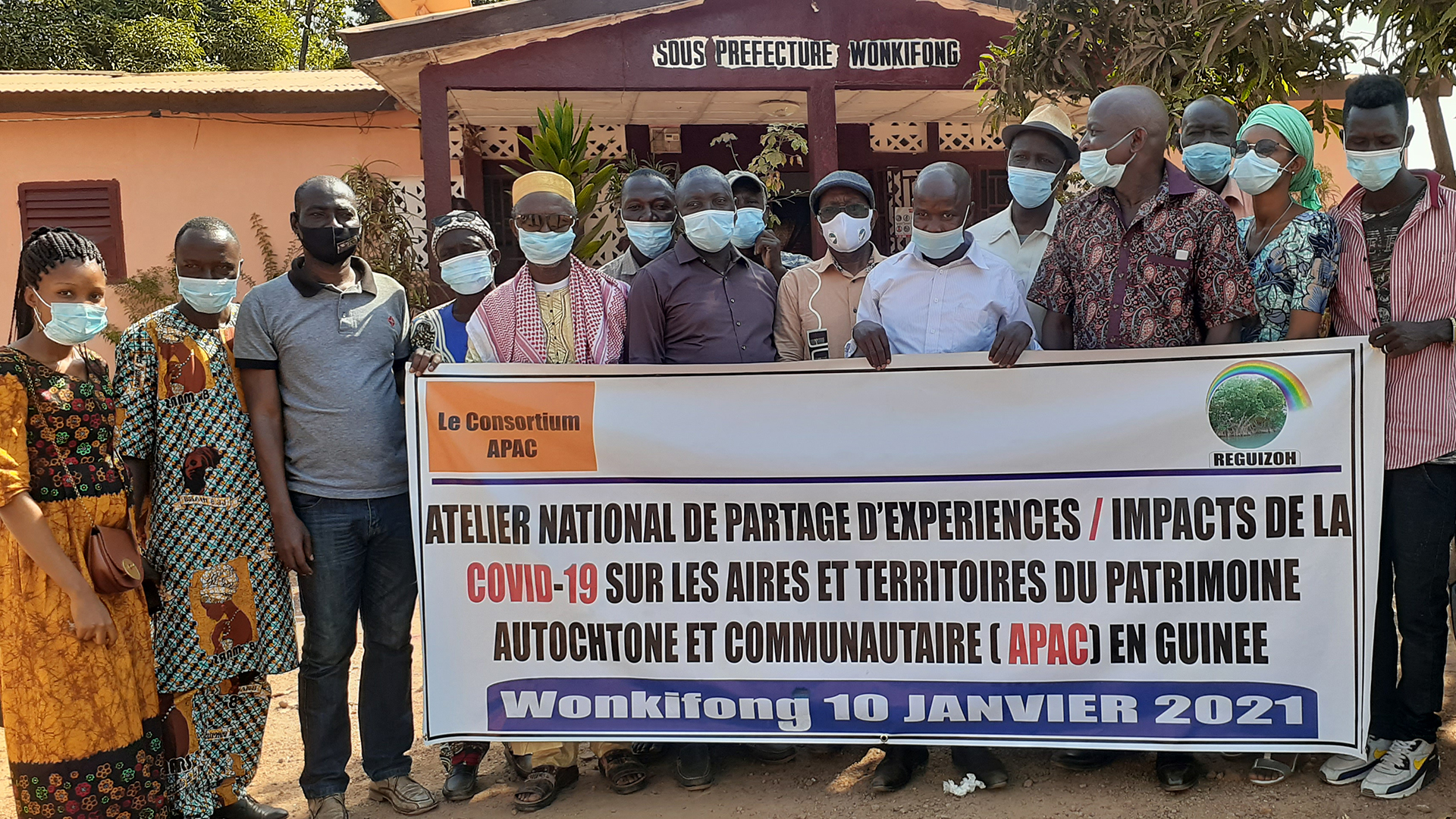Indigenous Peoples and local communities were affected more by strict governmental measures than by the virus in many African countries
First published on 06/30/2021, and last updated on 02/11/2025
Since the beginning of 2020, the COVID-19 pandemic has not spared Africa. However, there were fewer COVID-19 cases in Africa than in other continents. Certain African countries, like Senegal, have been less affected than others. Still, all African governments have put safety measures and restrictions to curb the spread of the virus in their territories.
Indigenous Peoples and local communities all over Africa have followed governments’ instructions, at least at the beginning of the pandemic. Communities in Africa are now facing the same developments as all other countries globally, namely the outbreak and spread of variants and actions and problems related to several vaccines. All African countries have in common that the safety measures have not been favorable for Indigenous Peoples and local communities; for example, the movement restrictions and social distancing have negatively affected traditional lifeways and values.
Thanks to the support of Sida, through SwedBio at the Stockholm Resilience Centre and other donors, ICCA Consortium Members from several French-speaking African countries have taken measures to help limit the spread of the virus among Indigenous Peoples and local communities.
The SwedBio funds for Africa have supported activities at the national level, such as workshops, operational expenses of some of our Members, and national networks in six countries. The countries are Benin, Burkina Faso, DR Congo, Guinea, Madagascar, and Senegal. In some instances, these activities were linked to the Post-2020 Global Biodiversity Framework process of the Convention on Biological Diversity. In other cases, they organized consultations, grassroots information-sharing events, or workshops on community responses to the COVID-19 pandemic.
In Senegal, the ICCA Consortium and the KaBeKa association purchased and distributed sanitary equipment and carried out various educational initiatives. In Benin, GRABE-BENIN and AMAF-Benin held several COVID-19 awareness workshops for a dozen local communities with information, training in preventive measures, equipment distribution, and reflections on “Governance of ICCAs-territories of life in the context of the COVID-19 pandemic.”
In Burkina Faso, the ASAPAC-BF and NATUDEV made the most of several work meetings to reinforce safety measures and distribute protective gear and hydroalcoholic products. Likewise, in DRC, the ANAPAC-DRC used several technical workshops advocating the adoption of the law protecting the rights of Indigenous Peoples and the post-2020 global framework of the CBD process to raise awareness of COVID-19. In Guinea, the national ICCA Consortium and REGUIZOH organized a specific workshop focusing on the impacts of COVID-19 on ICCAs-territories of life.
Even if government measures have been necessary for nations, particularly their urban centers, at the rural community level, the socio-economic impact of these measures has been felt more than the effects of the pandemic itself, especially in terms of the number of deaths.
For example, Senegal reports that state measures, particularly the curfew, have blocked access to the only source of livelihoods for numerous fishers from several ICCAs—territories of life. Restrictions on local fishers have encouraged illegal fishing by limiting surveillance by local fishing communities. In addition, certain communities like those in Burkina Faso feel more insecurity due to the threat of terrorism than the virus. However, this did not prevent them from activating their traditional systems of protection against external aggression, particularly the practice of sacrifices in sacred woods or ponds and traditional prevention pharmacopeia.
Countries in the global South cannot compensate for economic losses as easily as in the global North. State measures have often been replaced by informal, risky activities (such as spontaneous markets and burials held in secret to enable the family to be together), and solidarity between people and families has remained the main response of many communities to the pandemic.
In Africa, as in the rest of the world, numerous experiences speak to the resilience, autonomy, self-sufficiency, and solidarity of Indigenous Peoples and local communities. Generally speaking, communities have used their customary laws and practices to respond to the pandemic in their local context much more effectively than state governments. Such successful responses highlight the importance of decentralization, relocation, and the transfer of decision-making power to those who experience realities in situ.
We hope the experience acquired from this pandemic allows Indigenous Peoples and local communities to better respond to other external threats. For instance, climate change, which impacts the planet and its inhabitants, will be even more significant than COVID-19.
